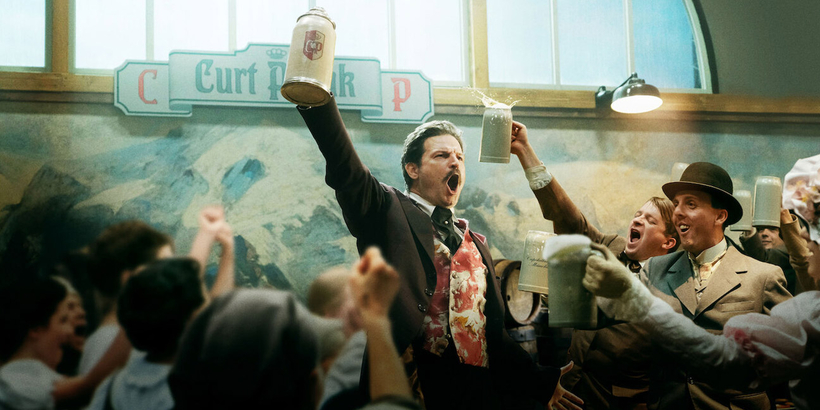The plot carries the hallmarks of all the best gangster movies: a ruthless outsider muscles his way into new territory, smashing his competition with contract killings, intimidation and pure bravado.
However, the story of Curt Prank does not play out on the mean streets of New York, nor among the bright lights of Las Vegas’s casinos. Instead, the setting is Bavaria in the 19th century, and the war is not over drug routes: it is for control of Oktoberfest.
And while the German TV show Oktoberfest 1900 has been a huge hit, it has infuriated the organizers of the real event, who say the violent portrayal of the history of the world’s biggest beer festival, effectively cancelled this year due to coronavirus, is an insult.
The producers of Oktoberfest 1900 say their tale of power and greed is inspired by a dispute among brewers that took place in 1898 but Clemens Baumgärtner, chief executive of the festival, said he had never heard of any such row. “To reduce an Oktoberfest to a power-obsessed milieu to attract audiences is totally out of line. It has nothing to do with reality,” he said.

Christian Schottenhamel, manager of an Oktoberfest beer tent which dates back to 1867, said: “This is damaging to our reputation. Even if it is supposed to be a fictitious representation, this negative portrayal is bad. Something always sticks with the viewer. Our guests will think, ‘That’s how it is today’.”
The setting is Bavaria in the 19th century, and the war is not over drug routes: it is for control of Oktoberfest.
The show echoes the brutal menace of Martin Scorsese’s 2002 epic Gangs of New York and tells the story of Prank, an outsider from Nuremberg who forces his way into Munich’s tight-knit brewing industry. He resorts to blackmail, bribery and contract killing to seize control of lucrative beer-selling plots on the festival ground in pursuit of his dream: to build a gigantic tent for 6,000 people. The real-life Oktoberfest is decidedly less bloody, but there is no denying that it is a closed shop, firmly in the hands of six Munich breweries who have exclusive rights to sell their high-octane beer, and of families who have run the beer tents for generations.
ARD, the German broadcaster, says the series has been a huge success, with the first two episodes, broadcast on Tuesday, attracting 4.42 million viewers; a market share of 15.7 per cent.
Michael Souvignier, the producer, told Bild newspaper he was sure viewers would be able to distinguish between fact and fiction. “I feel sorry for the festival tent hosts because the Oktoberfest has been cancelled this year,” he added.
That decision was a huge blow to brewers, reliant on the festival for a large portion of their income. Last year 6.3 million visitors consumed 1.9 million gallons of beer, 66,396 pork knuckles and 125 oxen. Festival revenues average $1.4 billion a year and there is little hope that such a loss can be offset by the pared-down, socially distanced Oktoberfest being held in beer halls across Munich over the next two weeks.
Even the oompah bands will be pale imitations: they must swap their brass instruments for accordions and guitars to avoid spreading virus-laden aerosols.
David Crossland is the author of The Jewish Candidate

